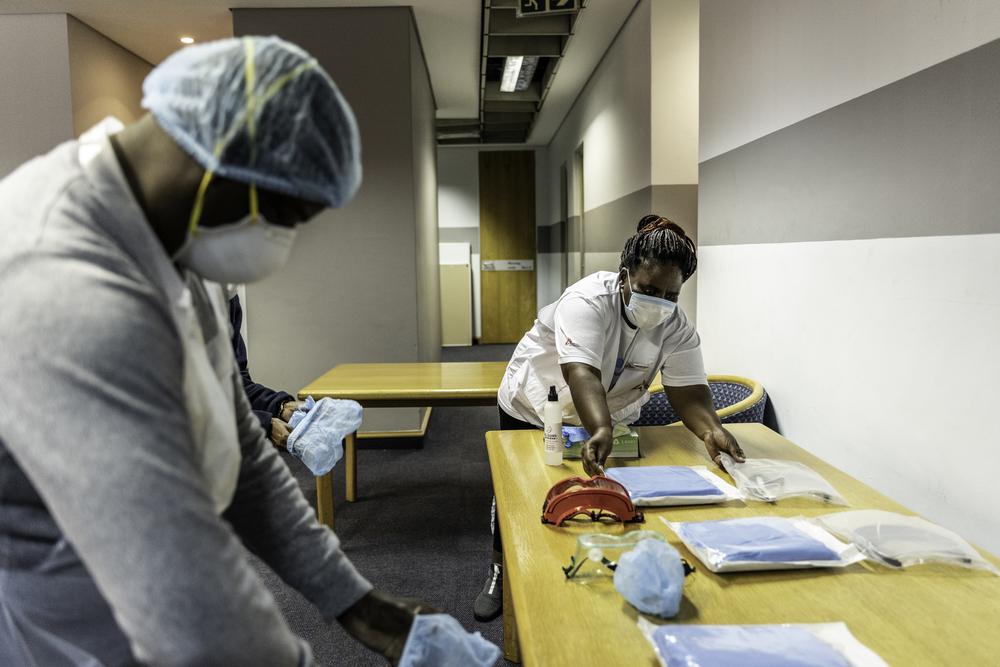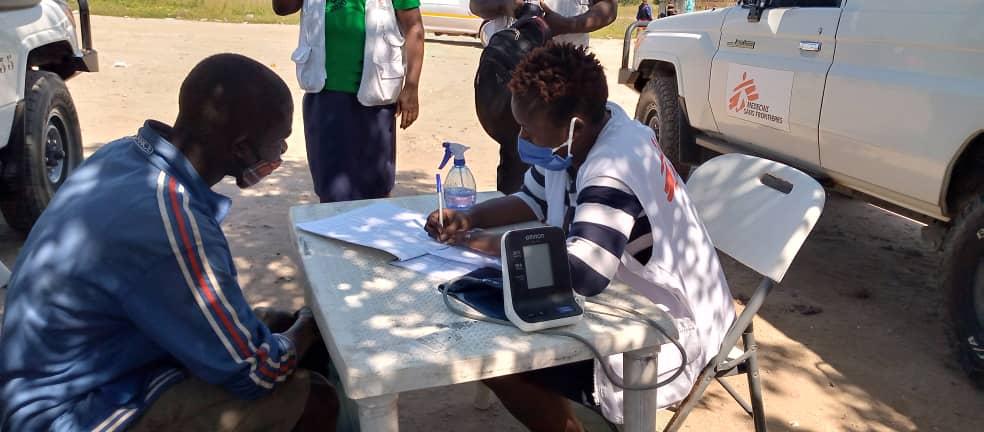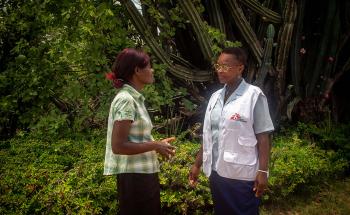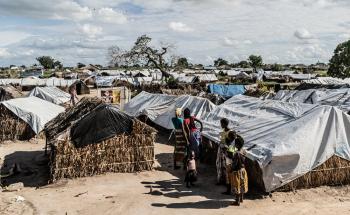As a highly infectious new strain of COVID-19 spreads through Southern Africa, health workers in Mozambique, Eswatini, Zimbabwe and Malawi are struggling to treat escalating numbers of patients with little clarity on when they will receive a vaccine to protect them from the virus. International medical organisation Doctors Without Borders (MSF) calls for COVID-19 vaccines to be distributed equitably, prioritising and protecting frontline health workers and people at highest risk of severe illness and death from COVID-19 in all countries, including in Africa.
“We are appalled by the inequitable distribution of COVID-19 vaccines across the world,” says MSF director of operations Christine Jamet. “While many wealthy countries started vaccinating their health workers and other groups nearly two months ago, countries such as Eswatini, Malawi, Zimbabwe and Mozambique, which are struggling to respond to this pandemic, have not received a single dose of vaccine to protect the most at-risk people, including frontline health staff.”
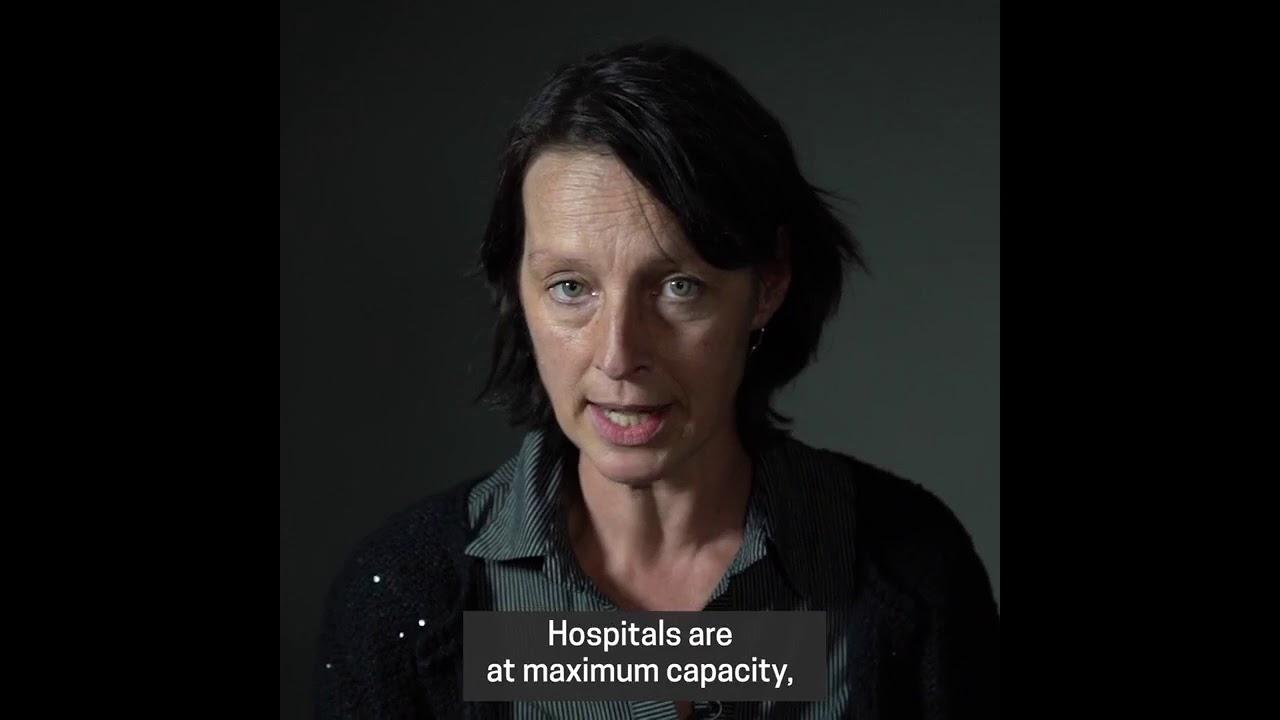
Urgent need for vaccines in Southern Africa
In Eswatini, a country of 1.1 million people, 200 new cases are being reported each day and deaths are around four times higher than in the first wave, with health workers saying that patients are becoming more severely sick this time around. With health facilities overwhelmed, MSF teams have set up tented wards at Nhlangano health centre and brought in extra doctors and nurses to care for critically ill COVID-19 patients.
In Mozambique, case numbers are currently almost seven times higher than at the peak of the first wave. “Health workers are getting sick and those still at work are exhausted,” says MSF head of mission Natalia Tamayo Antabak, whose teams are helping implement infection and prevention control measures at government COVID-19 treatment centres in Maputo to minimise infections in health staff working there.
In Malawi, new cases increased exponentially in January, doubling every four to five days. Queen Elizabeth Central Hospital, the main facility offering COVID-19 care in Blantyre, is close to full capacity for patients needing oxygen support. MSF has sent in extra staff and is ready to open an additional 40-bed ward for COVID-19 patients. “The priority right now is protecting frontline health workers,” says Marion Pechayre, MSF head of mission. “If Malawi had 40,000 doses of vaccine, we could at least start by vaccinating health staff in the country’s main hotspots. Without this, the situation will soon be untenable.” So far, 1,298 frontline health workers in Malawi have tested positive for COVID-19 and nine have died.
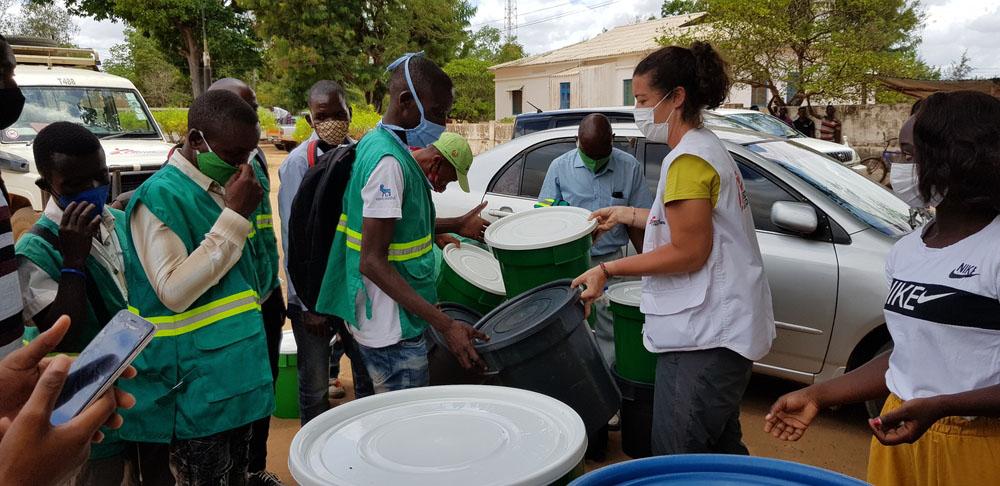
In Zimbabwe, last month was exceptionally difficult. January alone accounted for more than half of the country’s confirmed COVID-19 cases and two-thirds of the total deaths since the start of pandemic. Throughout the pandemic, MSF has been supporting local authorities in Harare with screening and referrals, health promotion, health education, access to water and laboratory services. In response to the rising cases during the second wave, MSF has begun an emergency intervention to increase bed capacity and improve quality of care and service organization in local hospitals working in partnership with the Ministry of Health and City of Harare
“People in the poorest countries seem to be at the back of the queue to access this crucial vaccine,” says Jamet. “There is an urgent need for vaccination in countries in Southern African that are struggling to respond to the aggressive spread of the new virus strain, which is overwhelming their health systems.”
While Mozambique, Eswatini, Zimbabwe and Malawi go without vaccines, wealthier nations are hoarding vaccines with the intention to vaccinate beyond the priority groups.
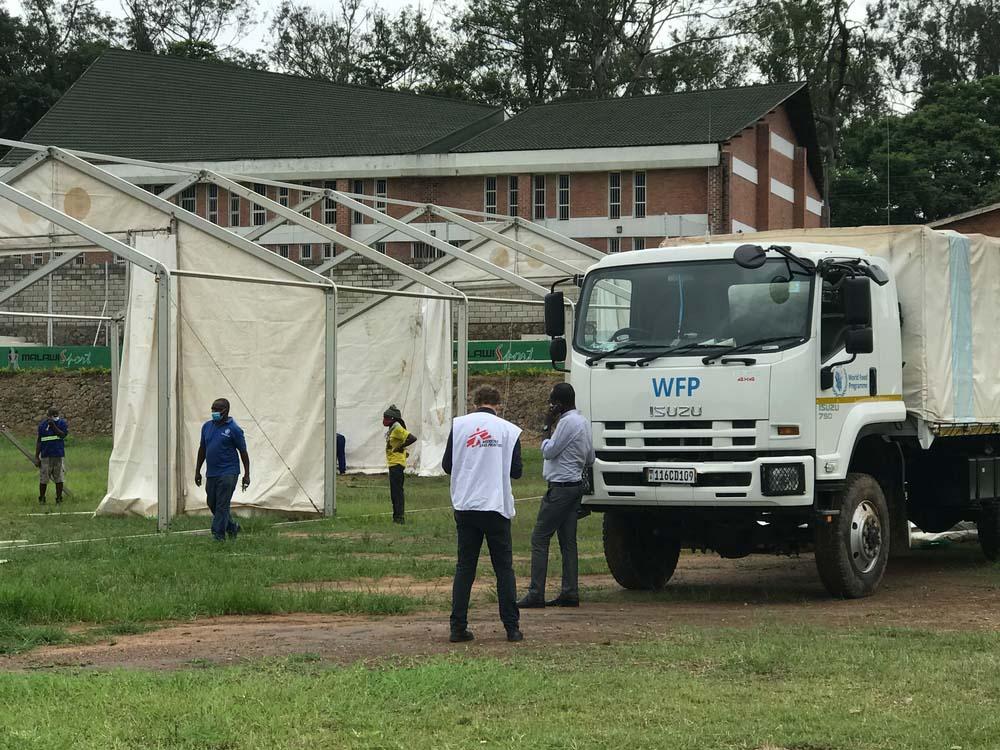
“It would be indefensible if some countries started to vaccinate their lower-risk citizens while many countries in Africa are still waiting to vaccinate their very first frontline health workers,” says Jamet. “This totally goes against the World Health Organization’s equitable allocation framework. Not only will it prolong the pandemic, but it will put even more lives at risk. We urge governments who have secured more doses than they need for vaccinating their high-risk groups to urgently share their doses so that other countries can start vaccinating. This is a global pandemic that requires a global spirit of solidarity if we truly hope to bring it under control.”
“MSF calls on vaccine manufacturers to ensure that priority is given to those countries that are in urgent need of protecting their healthcare staff. MSF stands ready to provide logistical support to high priority countries that were denied access to Pfizer/BioNTech vaccine through COVAX because of their limited cold chain management capacity,” says MSF Director of Operations, Isabelle Defourny.
Note to editors
South Africa
The picture in South Africa is quite different from neighbouring countries in the region. After a surge in cases between November 2020 and January 2021, the number of COVID-19 infections has shown a steady decrease in all provinces after a brutal second wave. During the festive season, health systems in South Africa struggled to cope with escalating numbers of patients, with health care workers accounting for up to 6% of all cases in the Eastern Cape Province in November and December, which had a negative impact on the capacity of the public health system to meet the needs.
On 1 February 2020, 1 million doses of the AstraZeneca “Covishield” vaccine produced under license by Serum Institute of India, arrived in the country, and it is expected that these will soon be rolled out to inoculate healthcare workers as part of the first phase of vaccinations to immunize 40million people. South Africa’s national department of health has reported that the government has acquired half of the 40 million individual vaccine doses of vaccine it needs to achieve herd immunity against the SARS-CoV-2 virus.
